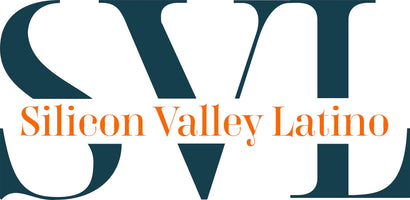What's the Secret to Great Networking? Become the Missing Link!
September 09, 2015

Article originally posted on LinkedIn by Leandro Margulis
Networking can be intimidating even to the most seasoned business people. It's especially daunting when you don't know anyone at the beginning of your career, or you're starting out in a new industry (or country!) completely from scratch. But in today's competitive business environment, the best opportunities often come to us from the people who already know and trust us. Without a solid professional network in place, you could miss out on these opportunities.
But how do you start building that professional network?
Let me tell you what's worked for me. My name is Leandro Margulis and I am originally from Buenos Aires, Argentina. I moved to the United States twelve years ago to attend school and pursue business interests, and, at that point, did not know many people in the United States.
Like many working professionals, I did not have a strong network.
As time went by, I discovered that interacting with other people energized me, and I wanted more of that. I enjoyed bouncing around ideas with others, as well as learning about other people's customs and culture.
I also discovered that not everyone felt the same way about networking as I did. Some people preferred to avoid interaction with others altogether. Some were shy, some feared rejection, and some had other reasons not to connect, like family obligations that took up a lot of their time. These people had even more difficulty building networks than most—but I've found that everyone has networking challenges to some degree.
This discovery showed me that I could add value to both individuals and organizations by helping to connect people I met in different places and through different sources. Sometimes one person I met was looking for what another person I knew could offer. But these two people would not have met unless I made the connection, because they frequent different circles.
In other words, I became their "missing link."
The Missing Link As Snowball Effect
Everyone in the professional world should constantly be asking themselves this question:
how do I add value? When I was thinking about what tagline to use on my LinkedIn profile, I realized that the best way to describe my personal business value is to show how I can connect people in ways that can benefit both them and their businesses.
I also realized that the more I connected people, the more events I was invited to. Each connection led to many more connections, snowballing upward and outward at a rapid pace. People started coming to me for referrals when they had trouble finding the expertise they needed. Not only that, people from my network began to call me for advice on an array of different issues.
In other words,
I had not only managed to grow my network on a grand scale, I had also become a trusted advisor to my network. My personal brand as a connector of people continued to grow, too—attracting even more professional connections.
By leveraging my personal interest in meeting and socializing with new people and places, I became an essential business asset to my network. Being resourceful earned me access to contacts I did not have before. It also helped me enhance my reputation among different clusters of people. I became the "go-to" person for finding talent and ideas across wide groups—
and the more people who consulted me, the more my credibility grew.
It didn't happen overnight, of course—but networking is something that tends to build upon itself over time. You get out of it what you put in.
The Weakest Link Is Also The Strongest Link
Another term for "
the missing link" is "
the weakest link" Think of the person in your cluster of contacts who seems the least engaged. Maybe that person is only someone you run into occasionally at the coffee shop or gym. Maybe it's the person on your work team who is the most reserved and least outgoing. Maybe it's a person you worked with several years ago and liked, but have since lost touch with.
That person might seem like the weakest link in your network. But if you take the time to reach out to this person and find out more about what makes him or her tick, you might discover he or she has hidden talents, interests, or contacts that are exactly what you or someone else you know is looking for.
By exploring the weakest links in your network, you might discover stronger links in their network. Or you might even find that the so-called weakest link can do something someone in your own network is dying to find.
For example, what if the shy software developer who never speaks up in weekly department meetings has a great idea for a new product or service one of your other contacts might be interested in? What if your former secretary who retired last year has relatives in the venture-capital world that could fund a startup? What if the intern who makes your coffee and organizes your files knows something about the sharing economy in Brazil because she backpacked there last summer?
The possibilities are endless. You never know until you ask.
Believe it or not, there is science supporting this theory. When I was a student at the Yale School of Management I learned about learning to leverage the weakest links in our networks from Joel Podolny, who is now Dean of Apple University. (Talk about building great connections!)
During his research on the subject, Podolny created a graph similar to the one below to illustrate how the weakest link in one social cluster could be the strongest link between two or more social clusters:

The so-called "weakest" link might even be you! Contrary to its name, it's a very strategic position to be in, both personally and professionally.
Do you want to become the missing link that could solve other peoples' business problems? It's easier than you think. Start out by learning to hang out in many different crowds across both your personal and professional lives. Keep your eyes open for new contacts—even unusual or shy ones—and actively listen to what people are saying. More than that, learn to read between the lines. (Your best friend's rant at the bar last night about what a hard time he's been having at work might be a clue that his business needs a smart consultant to help them solve a problem!)
And most of all, become the "go to" person everyone wants to invite to their meetings, parties, and social gatherings. Have the information and insight that people are looking for. Make introductions, and also seek them out. And never turn a blind eye to someone with an interesting story to tell, even if it's not work-related. You never know where these contacts might lead you!
Share your thoughts with us and tell us how you become the missing link!
Leave a comment
Comments will be approved before showing up.

 The so-called "weakest" link might even be you! Contrary to its name, it's a very strategic position to be in, both personally and professionally.
Do you want to become the missing link that could solve other peoples' business problems? It's easier than you think. Start out by learning to hang out in many different crowds across both your personal and professional lives. Keep your eyes open for new contacts—even unusual or shy ones—and actively listen to what people are saying. More than that, learn to read between the lines. (Your best friend's rant at the bar last night about what a hard time he's been having at work might be a clue that his business needs a smart consultant to help them solve a problem!)
And most of all, become the "go to" person everyone wants to invite to their meetings, parties, and social gatherings. Have the information and insight that people are looking for. Make introductions, and also seek them out. And never turn a blind eye to someone with an interesting story to tell, even if it's not work-related. You never know where these contacts might lead you!
Share your thoughts with us and tell us how you become the missing link!
The so-called "weakest" link might even be you! Contrary to its name, it's a very strategic position to be in, both personally and professionally.
Do you want to become the missing link that could solve other peoples' business problems? It's easier than you think. Start out by learning to hang out in many different crowds across both your personal and professional lives. Keep your eyes open for new contacts—even unusual or shy ones—and actively listen to what people are saying. More than that, learn to read between the lines. (Your best friend's rant at the bar last night about what a hard time he's been having at work might be a clue that his business needs a smart consultant to help them solve a problem!)
And most of all, become the "go to" person everyone wants to invite to their meetings, parties, and social gatherings. Have the information and insight that people are looking for. Make introductions, and also seek them out. And never turn a blind eye to someone with an interesting story to tell, even if it's not work-related. You never know where these contacts might lead you!
Share your thoughts with us and tell us how you become the missing link!




